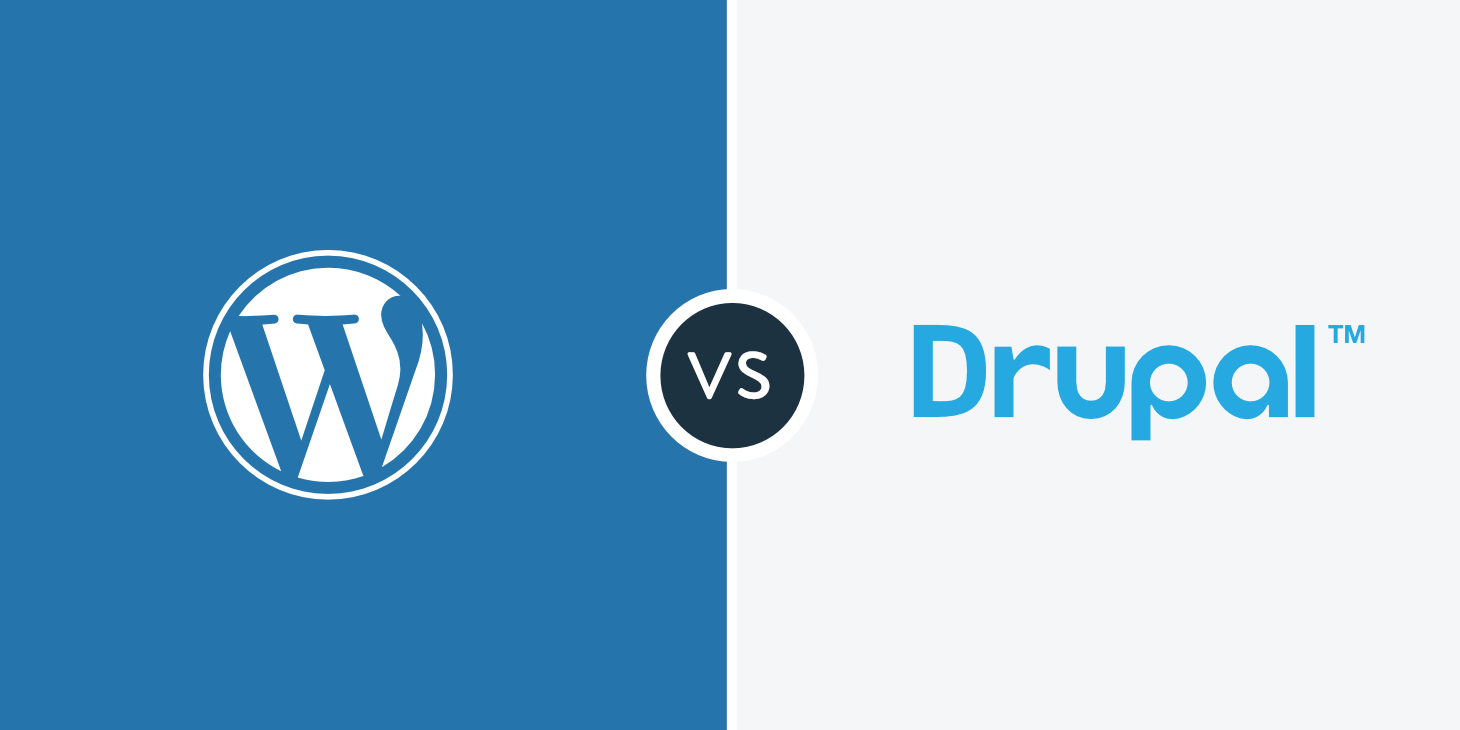Choosing the right CMS is crucial for online business success, impacting a website's function and growth. Drupal and WordPress, two powerful platforms serving different needs and users. Businesses need to pick the best tool for their company's future.
Picking the right foundation for your online home is a big deal. Every business owner knows that a website acts as your digital storefront. This important choice impacts how your site works, how much it can grow, and your overall success online. It sets the stage for everything you do on the web.
Today, two platforms lead the way: Drupal and WordPress. Both are powerful content management systems, or CMS, but they serve different needs. Each has its own strengths and appeals to a unique kind of user. This article helps you understand them better, so you can pick the best tool for your company's future.
We will look at key things to consider when choosing. Think about how easy they are to use, how much you can change them, how safe they are, if they can grow with you, and what they really cost. These points will guide your choice, ensuring you pick what truly fits.
Understanding the Core Differences: Drupal vs. WordPress
Ease of Use and Learning Curve
User-Friendly Interface
WordPress stands out for its incredibly simple dashboard. Folks love how easy it is to find what they need. Many new users can grasp the basics quickly. Its design makes managing your site feel like a breeze.
Creating and changing content on WordPress is straightforward. You don't need to be a tech expert to add a new blog post or update a page. This makes it perfect for teams who want to keep their website fresh without needing deep coding knowledge. You can publish new ideas with just a few clicks.
Drupal's Steeper Learning Curve
Drupal, on the other hand, comes with many powerful tools. This often means its first look can feel a bit busy or complex. New users might find themselves needing a little more time to get comfortable. It's built for power, and that power takes some learning.
With proper training or a good development team, users can master Drupal. Once you understand how it works, you will find it incredibly efficient. The initial challenge pays off with fine control over your content.
Customization and Flexibility
WordPress: Themes and Plugins Ecosystem
WordPress boasts a huge library of ready-made themes. These change your site's look in an instant. Plus, you'll find thousands of plugins that add new features. This vast selection means you can add almost any function without writing a single line of code.
Imagine you want to sell products online. You can simply add an e-commerce plugin like WooCommerce. This turns your site into a full-fledged online store. It happens fast and without needing custom development.
Drupal: Granular Control and Modularity
Drupal's design allows for extreme flexibility. Its modular setup handles tricky content types and how they link together. You get very precise control over every part of your site. This makes it a go-to for complex projects.
Its API-first approach means it easily connects with other systems. Developers can build unique features from scratch. This flexibility is key for a big company website needing special data tools. For sites that need to grow in specific ways, Drupal provides the framework.
Security and Performance
WordPress Security
WordPress serves a massive number of websites worldwide. This popularity can attract unwanted attention from hackers. Because so many sites use it, it sometimes becomes a target for those looking for weaknesses. You need to be alert.
To keep your WordPress site safe, you must take steps. Always update your core software, themes, and plugins right away. Use strong passwords and consider a good security plugin. It is vital to stay proactive. WordPress powers about 43% of all websites on the internet, showing its wide reach.
Drupal's Robust Security Features
Drupal has a strong name for security right out of the box. It comes with many safety tools already built in. This makes it a solid choice for businesses who worry a lot about digital threats. Its structure often feels more secure from the start.
A dedicated team works on Drupal's security, always finding and fixing issues. They release updates quickly to patch any weak spots. That's why government bodies and large companies often pick Drupal. They trust its strong defenses to keep their important data safe.
Scalability and Enterprise-Level Needs
Handling Growth and Complexity
WordPress Scalability
WordPress can handle growth well for most small to mid-sized companies. It performs great for many businesses as they expand. If your traffic starts to climb, tools like advanced caching and a CDN (Content Delivery Network) can help. Optimized hosting also keeps things running smoothly.
However, for sites with incredibly high visitor numbers or very complex data, WordPress might hit some limits. While you can scale it, extreme cases might need more effort to keep up. It shines for common business needs, but truly massive operations may face hurdles.
Drupal's Enterprise-Grade Scalability
Drupal is built to manage huge amounts of content and massive traffic. Its design supports growth without breaking a sweat. It can effortlessly handle millions of pages and countless users. This makes it ideal for the biggest organizations.
The platform's structure is made for complex applications that use a lot of data. You will find it handles heavy loads with grace. For example, The White House website runs on Drupal. This shows its strength for large, public-facing platforms with many moving parts.
Multilingual Capabilities and Advanced Workflows
WordPress Multilingual Support
Making a WordPress site multilingual usually means adding special plugins. These tools help you offer content in different languages. You can serve global audiences this way. Many options exist for this purpose.
However, you need to choose your plugins carefully. Managing translations and ensuring everything works together can get tricky. It's possible to do, but it needs a good plan and ongoing attention.
Drupal's Native Multilingual and Workflow Features
Drupal offers strong, built-in support for multiple languages. It comes ready with tools to handle translations smoothly. This makes it easy to reach an international audience. You will find managing content across different tongues very simple.
It also has advanced user roles and permissions. These features are perfect for companies with complex content approval processes. You can set up specific steps for review and publishing. This helps large teams work together effectively.
Cost Considerations: Development, Maintenance, and Ownership
Initial Setup and Development Costs
WordPress: Lower Entry Barrier
Starting a website with WordPress often costs less money. It is easy to use, and many free themes and plugins are available. This makes it a budget-friendly option for new businesses. You can get online without a huge initial spend.
However, prices can go up if you choose premium themes or plugins. Custom work for unique features also adds to the bill. So, while you can start cheap, advanced needs will mean higher costs.
Drupal: Potentially Higher Initial Investment
Drupal's complexity often calls for skilled developers. This means its first development costs might be higher. You are paying for a robust system built to handle tough tasks. The setup takes more specialized knowledge.
For companies with complex needs, this early investment often pays off big time. The long-term benefits in terms of features, security, and scalability can be huge. Think of it as investing in a powerful engine.
Ongoing Maintenance and Support
WordPress Maintenance
A WordPress site needs regular care. You must update its core, themes, and plugins often. Sometimes these updates cause small problems or conflicts. Staying on top of them is key for security and smooth running.
You might pay for premium support plans or hire a developer for ongoing help. This ensures your site stays safe and works well. Budgeting for this regular upkeep is important.
Drupal Maintenance and Community Support
Drupal has a very active community. If you hit a snag, help is usually available online. This strong support system helps with troubleshooting. Many developers share solutions and advice freely.
Regular updates are crucial for Drupal's security and performance. These ensure your site remains protected and fast. Often, businesses hire specialized Drupal agencies for this work.
Which Platform is Best for Your Business?
When to Choose WordPress
Small to Medium Businesses (SMBs)
WordPress is an excellent choice for businesses with basic website needs. This includes blogs, simple online stores, or brochure sites. If you want a straightforward web presence, it works well. It's perfect if you prioritize an easy-to-use system and want to launch quickly.
Budget-Conscious Startups
New businesses with limited funds will find WordPress very appealing. It offers a cost-effective way to build a professional website. You can get started without breaking the bank. It helps you save money for other areas of your business.
Limited Technical Resources
If your company doesn't have in-house web developers, WordPress is a good fit. Its user-friendly design means less technical skill is needed. You can manage most tasks yourself or with minimal outside help. This reduces your reliance on expert coders.
Actionable Tip
Always choose a reliable WordPress hosting company. Make sure you stay on top of all your updates for core, themes, and plugins. This keeps your site safe and fast.
When to Choose Drupal
Large Enterprises and Government
Drupal is the go-to for big companies and government bodies. It shines when you need top-tier security, massive scalability, and complex ways to handle data. These organizations need a platform that can handle extreme demands.
Highly Customized or Complex Websites
Pick Drupal if your site needs special features or deep integrations. It is perfect for intricate user roles or connecting with other business systems. If your vision is unique and requires a tailored approach, Drupal offers the power to build it.
Businesses Needing Multilingual Capabilities
If reaching a global audience is vital, Drupal's strong multilingual tools are a major plus. It simplifies managing content in many languages. This makes it easier to connect with diverse customers around the world.
Actionable Tip
For Drupal, it's wise to work with experienced developers. They can unlock the platform's full potential for your business. Their expertise will ensure your complex site runs perfectly.
Conclusion: Making the Right Decision for Long-Term Success
The "best" CMS really depends on what your company needs. Think about your budget and how much technical skill you have in-house. There is no one-size-fits-all answer; it is about finding the right tool for your unique goals.
WordPress offers ease of use and is widely adopted, great for getting started quickly. Drupal provides robust security, immense scalability, and deep customization for the most demanding projects. Each platform excels in different areas.
Before you make a final decision, take time to truly assess your needs. What kind of content will you have? How much traffic do you expect? What are your security concerns? Answering these questions helps clarify your path.
Consider speaking with web development experts who know both platforms well. They can offer guidance tailored to your specific situation. This ensures you pick a CMS that will support your business now and far into the future.

